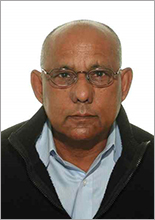Treating Wastewater Like Water: Increasing Treatment and Reuse
Would you drink treated wastewater from the toilet? Even if you say no, I know that you have been drinking it on a regular basis, if you live in the United States or many other parts of the world. Let me explain. I have visited wastewater treatment facilities in Orange County, Florida, Imperial County, California, Las Vegas, Nevada, and Phoenix, Arizona. All orange orchards in Florida and some in California are irrigated by treated wastewater. The beginnings of a delicious freshly squeezed orange juice in a Whole Foods store most likely originated in someone’s toilet. Frozen Florida orange juice is exported all over the world. So, even if you have not visited the United States, most likely you have tasted a Tropicana brand orange juice from Florida. How about drinking water in the UK? Many utilities are blending treated wastewater into the municipal water supply system. Treated wastewaters are as good as spring water and may be an even better option for the poor in developing countries who rely on private water trucks which are not regulated for their quality.
Particularly in Middle Eastern countries, there is a stigma attached to the reuse of treated waste water. Currently, use of treated waste water for agricultural purposes in Arab countries varies: some do not use it at all, and in others, in a few oil-exporting countries such as Saudi Arabia, UAE, and Qatar, highly treated water is produced from newly constructed wastewater treatment plants. So far, many countries use treated wastewater only for watering public gardens or landscaping along highways. However, wastewater is a renewable water source and can be treated for various levels of reuse. Middle Eastern and North African (MENA) countries can follow the rules developed by the World Health Organization (WHO) or they may follow more stringent rules developed in the United States and by the State of California for reuse of treated wastewater. Treated wastewater can make a significant contribution to sustainability by reducing pressure on existing water supplies.
Most non-GCC (Gulf Cooperation Council) MENA countries need to formulate policy, legislation, and a regulatory framework for wastewater treatment and reuse. Furthermore, a comprehensive program of investments for the dedicated sewerage systems and wastewater treatment infrastructure in major cities is also needed. However, formulating a reuse strategy for urban industry and agriculture has been relatively slow except in the case of Saudi Arabia. Saudi Arabia has made significant changes to its water sector regulatory system to make it more investor friendly, such as implementing a public-private partnership program. The National Water Company is planning to invest over US$23 billion over the next 20 years for sewerage collection infrastructure facilities to increase from its present level of 45 percent to a100 percent collection coverage. MENA countries with investment constraints can also follow the example of the New Cairo wastewater treatment plant, Egypt’s first public-private partnership project in the water sector.
Shibu B. Dhar provides consulting services to multilateral banks (The World Bank, Inter-American Bank, Asian Development Bank and European Development Bank), bilateral development agency, USAID and private infrastructure clients. He has extensive experience in the reform of water companies in the developing countries, including the management of regulation, the development of commercial targets, and performance management systems. His experience includes design of institutional frameworks, design and review of appropriate regulatory bodies in the water sector, which has been gained through assignments in Cape Verde, Zambia, Latvia, Vanuatu, Mongolia, India and USA.
